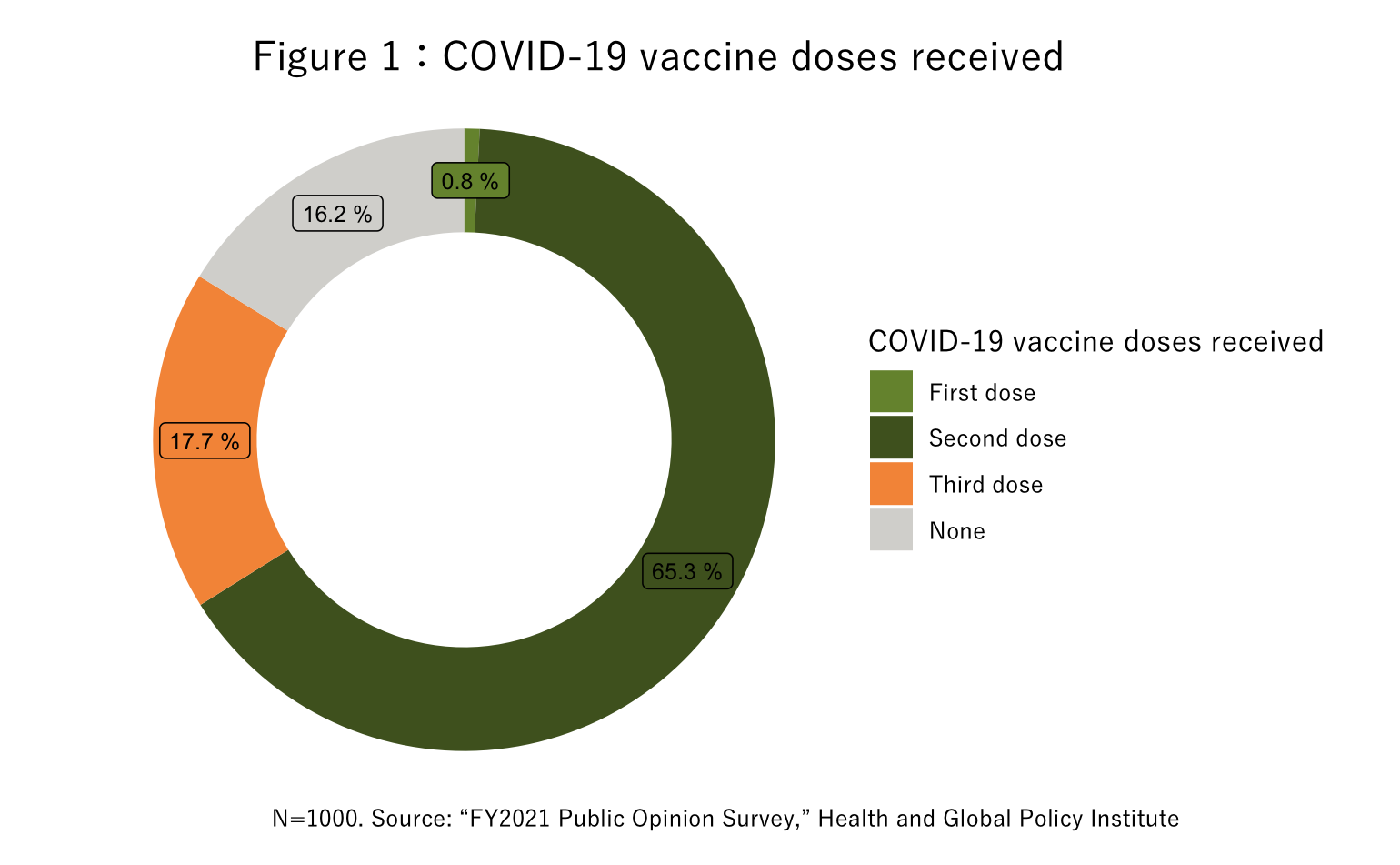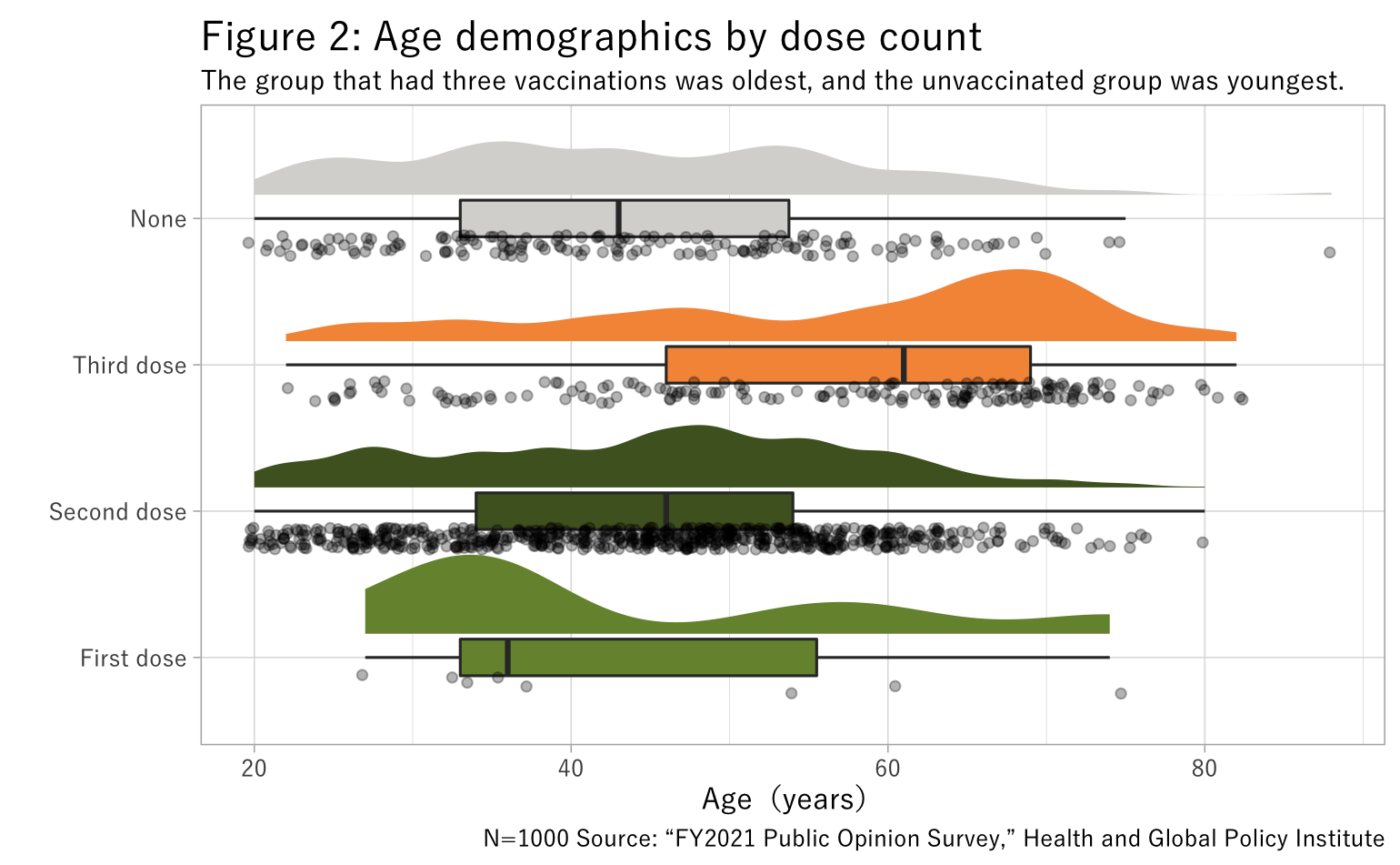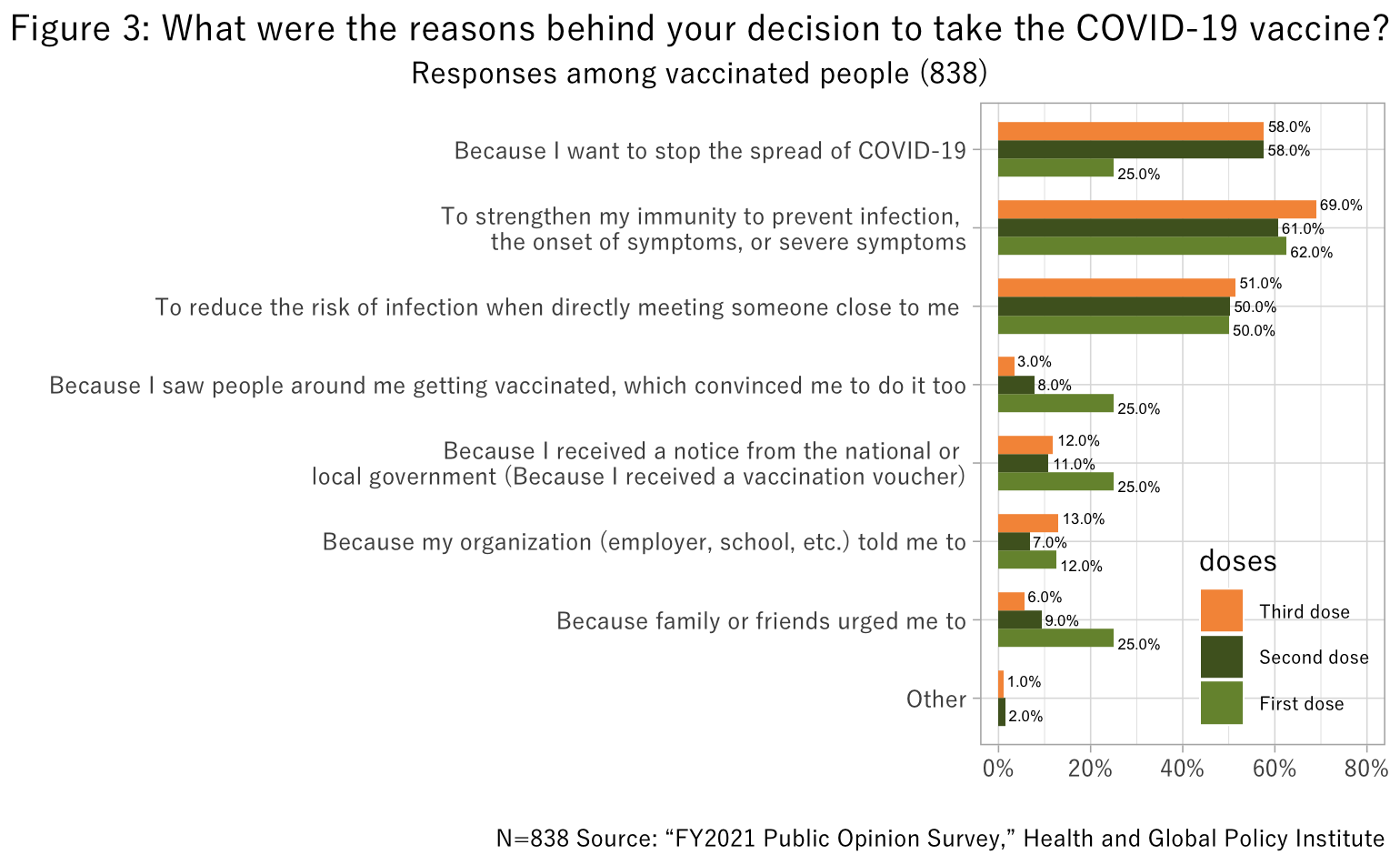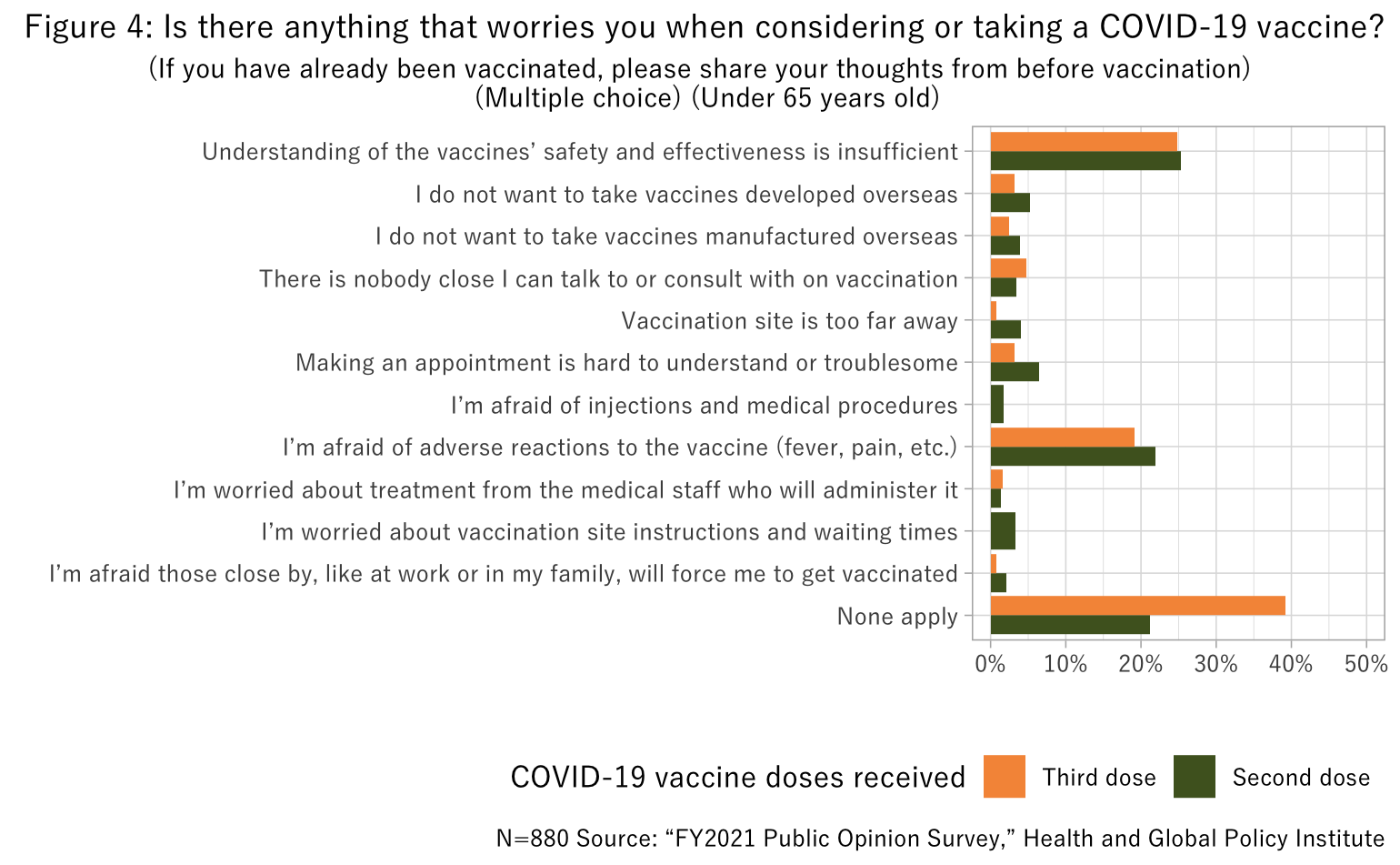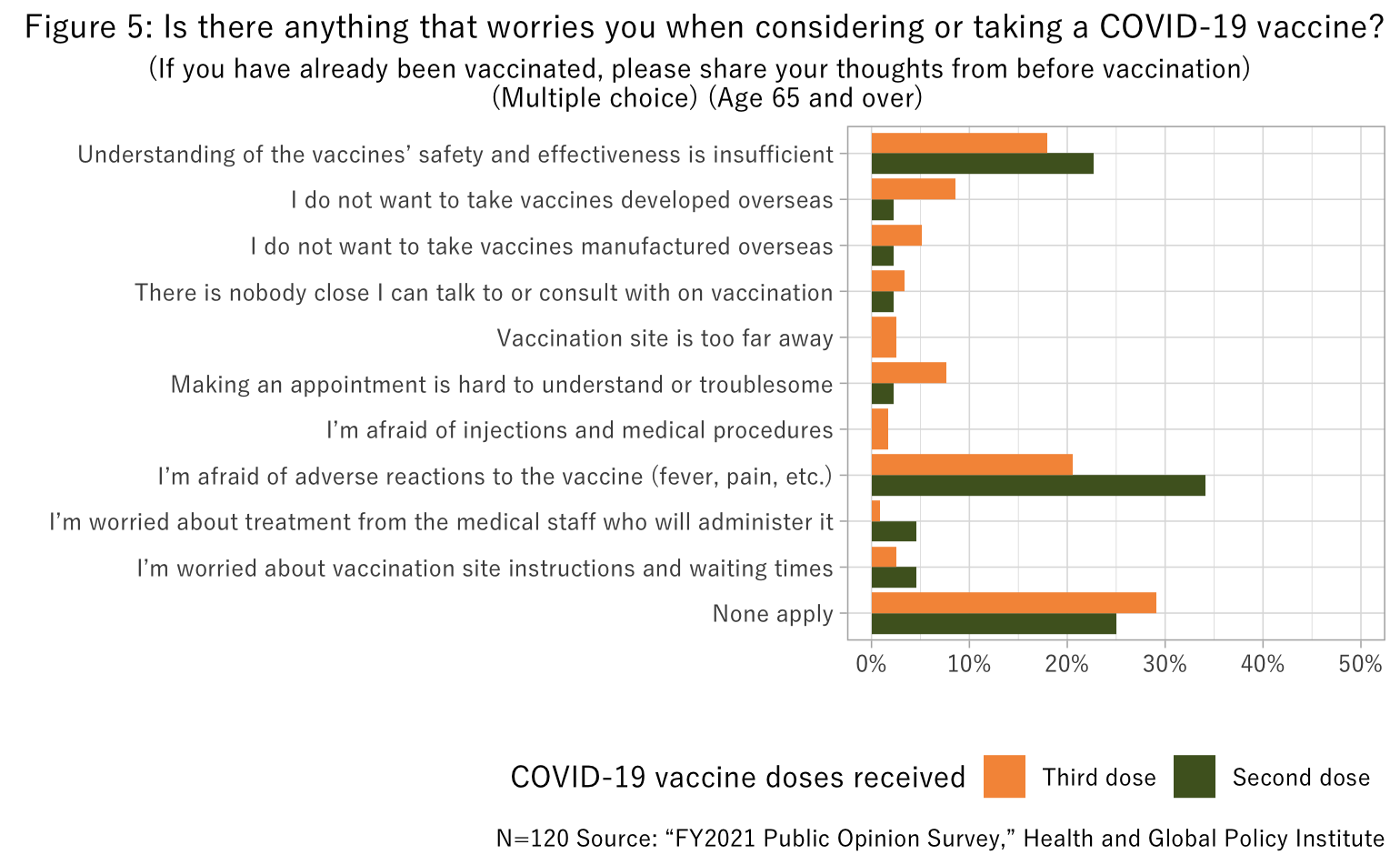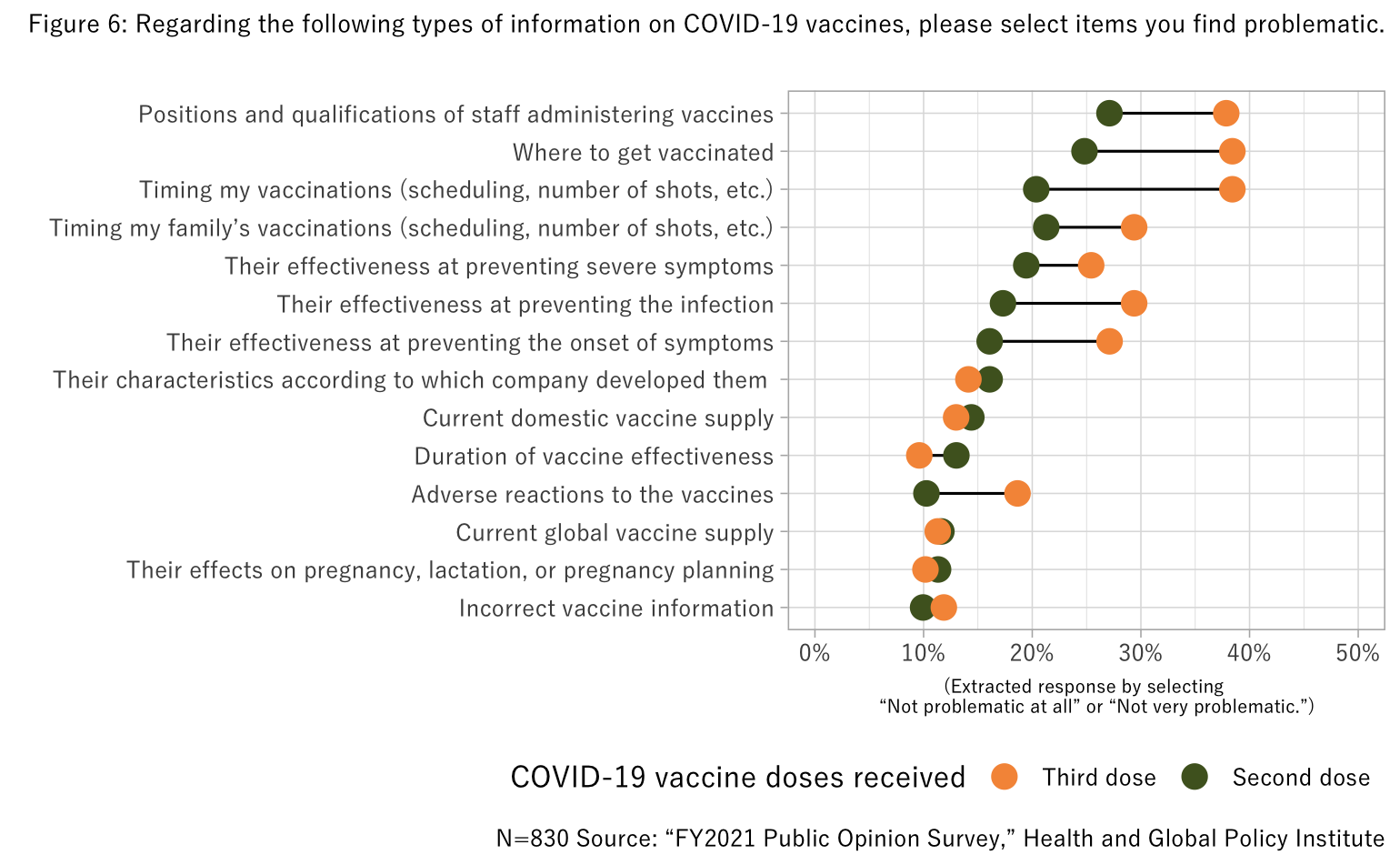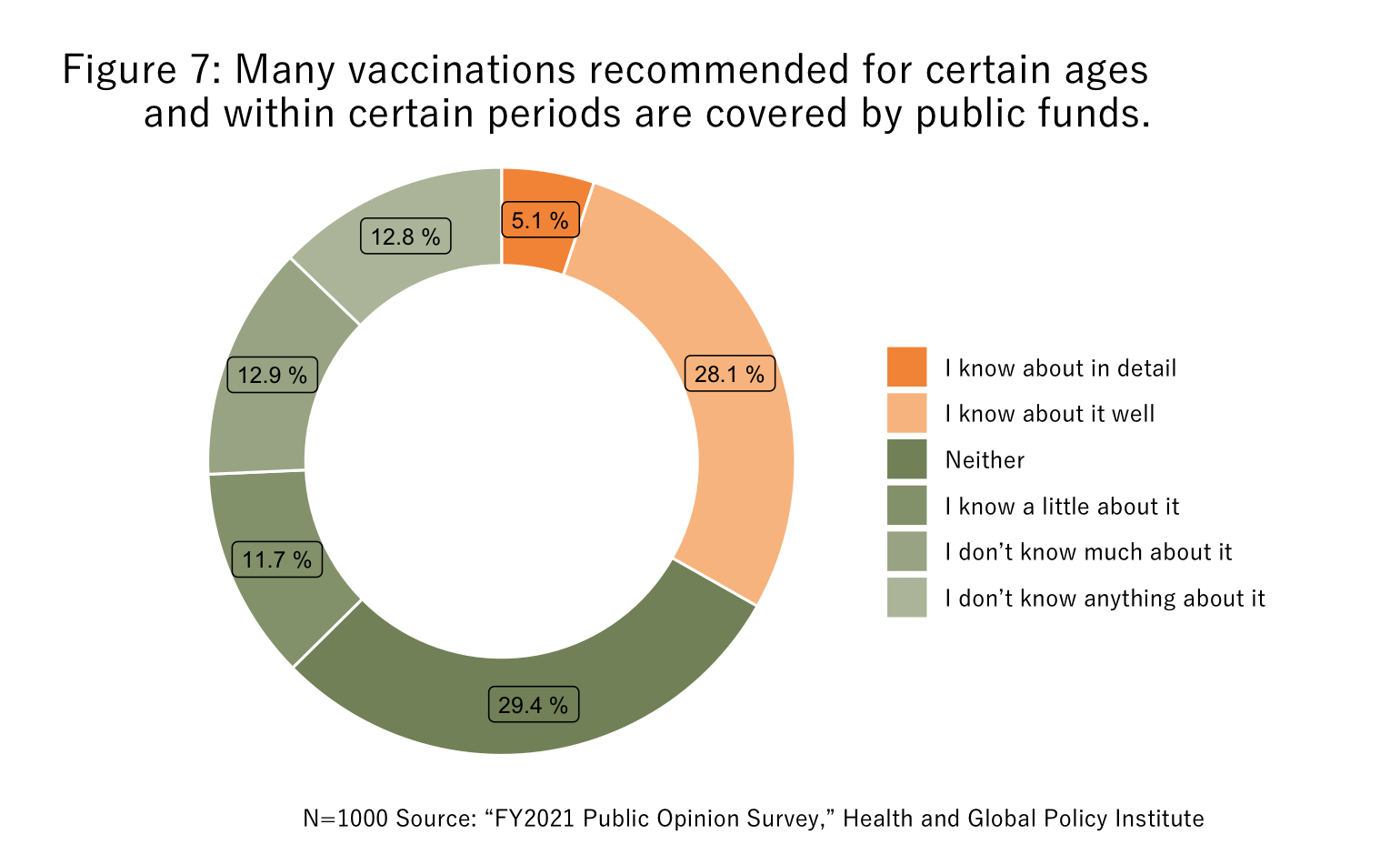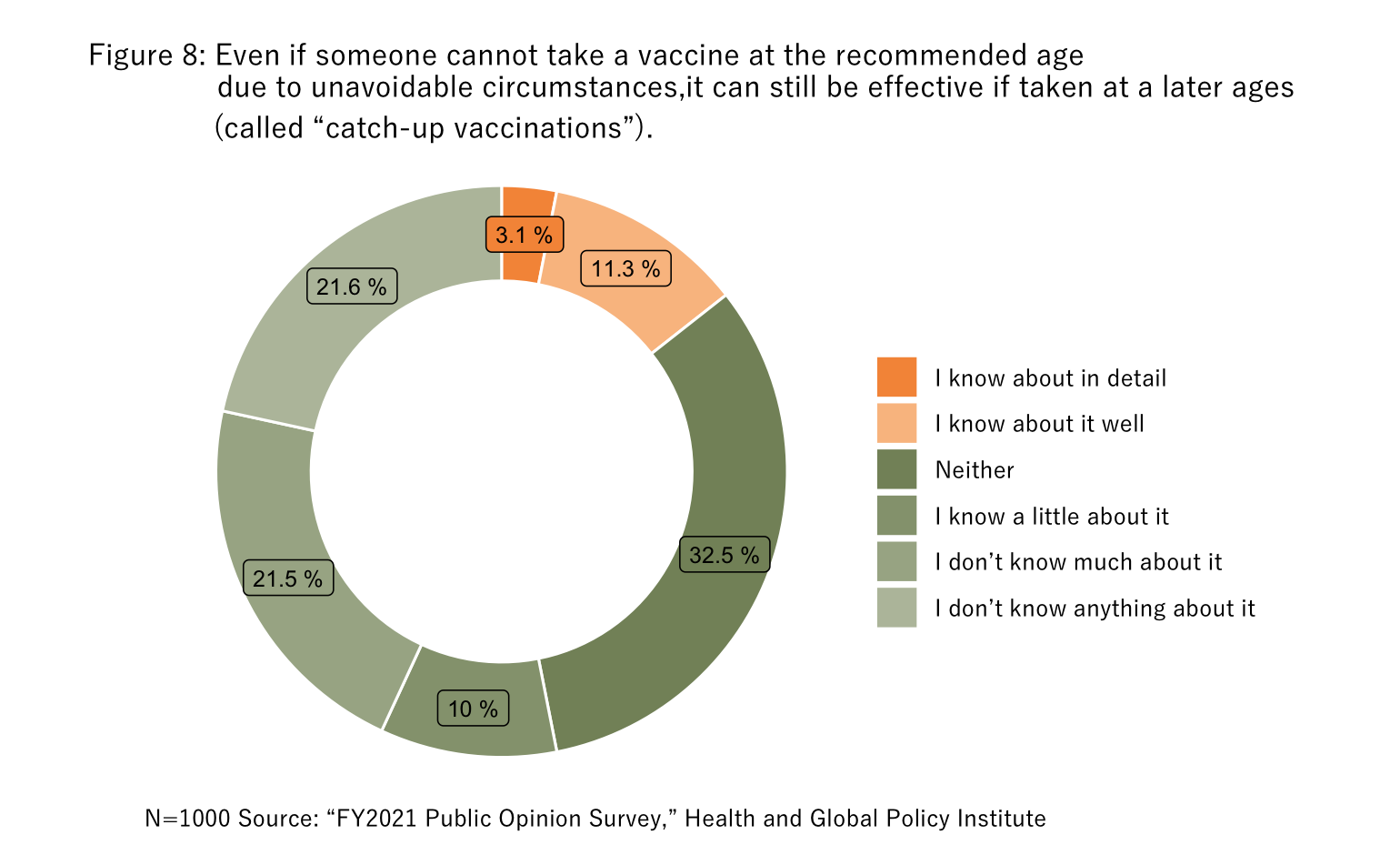[Research Report] Public Opinion Survey on COVID-19 Vaccines and Immunization and Vaccination Policy (June 17, 2022)
date : 6/17/2022
![[Research Report] Public Opinion Survey on COVID-19 Vaccines and Immunization and Vaccination Policy (June 17, 2022)](https://hgpi.org/en/wp-content/uploads/sites/2/vaccine-survey-202206-top_ENG.jpg)
Health and Global Policy Institute (HGPI) has presented the results of a public opinion survey on COVID-19 vaccines and immunization and vaccination policy.
The survey was conducted on March, 2022 among 1,000 people selected by region, age, and sex in ratios in that correspond to the demographics of the total population of Japan.
In addition to opinions regarding COVID-19 vaccines, the survey also examined general topics in immunization and vaccination policy.
Figures 1 and 2 show COVID-19 vaccination status among respondents when the survey was conducted.
Reasons for taking COVID-19 vaccines are as shown below. Over half of respondents who took the second and third doses said they decided to get vaccinated to more effectively help contain the pandemic; to prevent infection, the onset of symptoms, and the development of severe symptoms; as well as to reduce the risk of infections when coming into contact with people close to them (Figure 3).
On the other hand, when considering taking COVID-19 vaccines, concerns about adverse reactions and vaccine effectiveness and safety were seen among both respondents under age 65 and respondents age 65 and over (Figures 4 and 5). Concern toward adverse reactions was especially prominent among respondents age 65 and over who had not yet received the third shot.
Respondents were asked to rate several statements regarding COVID-19 vaccines on a scale from “Not problematic at all” to “Very problematic.” Comparing the total number of responses that said “Not problematic at all” or “Not very problematic” for each question, we see that those with the third shot found there to be no problems with many statements on the current state of information. Conversely, a high percentage of respondents felt that information on vaccine production and provision systems needs to be studied, discussed, and resolved. These matters included characteristics of the companies that developed the vaccines, domestic supply status, and global supply status. They also included information on post-vaccination effects, such as effects on pregnancy and duration of effectiveness.
Questions on General Immunization and Vaccination Policy Not Limited to COVID-19 Vaccines
In a question on general immunization and vaccination policy not limited to COVID-19 vaccines, approximately 30% of respondents were aware that vaccinations are conducted with coverage from public funds. Although vaccinations for over 90% of the citizens of Japan are covered by public funds, awareness toward this fact was extremely low (Figure 7).
Coverage periods for routine vaccinations are defined by the Immunization Law, and even those outside the targeted age groups can be vaccinated within coverage periods with partial or full public funding. Furthermore, people who have missed vaccinations due to unavoidable reasons such as illnesses requiring long-term treatment are still eligible for routine vaccinations within two years of recovering. However, if that period has already ended, or if someone wants to be vaccinated outside the period of eligibility for personal reasons or other reasons, their vaccination will be treated as voluntary, and they will have to pay the full cost out-of-pocket. Vaccinations provided to make up for delays are called “catch-up vaccinations,” but we found awareness toward the effectiveness of these catch-up vaccinations to be low, at just over 10% (Figure 8).
HGPI is actively working to advance immunization and vaccination policy. For more information about this project, please click here.
Top Research & Recommendations Posts
- [Policy Recommendations] The Path to a Sustainable Healthcare System: Three Key Objectives for Public Deliberation (January 22, 2026)
- [Research Report] The 2025 Public Opinion Survey on Healthcare in Japan (March 17, 2025)
- [Research Report] Perceptions, Knowledge, Actions and Perspectives of Healthcare Organizations in Japan in Relation to Climate Change and Health: A Cross-Sectional Study (November 13, 2025)
- [Policy Recommendations] Reshaping Japan’s Immunization Policy for Life Course Coverage and Vaccine Equity: Challenges and Prospects for an Era of Prevention and Health Promotion (April 25, 2025)
- [Research Report] The 2023 Public Opinion Survey on Satisfaction in Healthcare in Japan and Healthcare Applications of Generative AI (January 11, 2024)
- [Research Report] AMR Policy Update #4: Cancer Care and AMR (Part 1)
- [Public Comment Submission] “Assessment Report on Climate Change Impacts in Japan (Draft Overview)” (December 24, 2025)
- [Policy Recommendations] Developing a National Health and Climate Strategy for Japan (June 26, 2024)
- [Research Report] The Public Opinion Survey on Child-Rearing in Modern Japan (Final Report) (March 4, 2022)
- [Research Report] Survey of Japanese Physicians Regarding Climate Change and Health (December 3, 2023)
Featured Posts
-
2026-01-09
[Registration Open] (Hybrid Format) Dementia Project FY2025 Initiative Concluding Symposium “The Future of Dementia Policy Surrounding Families and Others Who Care for People with Dementia” (March 9, 2026)
![[Registration Open] (Hybrid Format) Dementia Project FY2025 Initiative Concluding Symposium “The Future of Dementia Policy Surrounding Families and Others Who Care for People with Dementia” (March 9, 2026)](https://hgpi.org/en/wp-content/uploads/sites/2/dementia-20260309-top.png)
-
2026-02-05
[Registration Open] (Webinar) The 141st HGPI Seminar “Current Status and Future Prospects of Korea’s Obesity Policy: Voices of People with Lived Experience in Policy Promotion” (March 3, 2026)
![[Registration Open] (Webinar) The 141st HGPI Seminar “Current Status and Future Prospects of Korea’s Obesity Policy: Voices of People with Lived Experience in Policy Promotion” (March 3, 2026)](https://hgpi.org/en/wp-content/uploads/sites/2/hs141-top-1.png)
-
2026-02-06
[Research Report] AMR Policy Update #5: Cancer Care and AMR (Part 2)
![[Research Report] AMR Policy Update #5: Cancer Care and AMR (Part 2)](https://hgpi.org/en/wp-content/uploads/sites/2/HGPI_20260204_AMR-Policy-Update-5.png)




